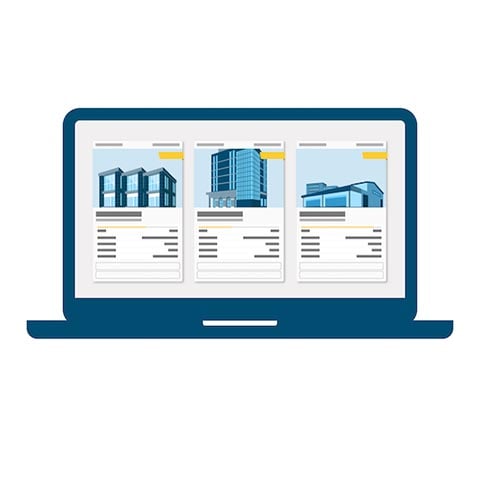 As a financial advisor, you want to offer your clients helpful guidance and sound advice—that’s why they engage your services, after all. In many cases, you may suggest investment options and strategies that the client isn’t familiar with, so they rely on you to know the details and to provide suitable suggestions. Depending on your client, you may offer assistance with various tasks ranging from retirement forecasting to budgeting to estate planning. Often, you will recommend investment choices and offer tax management strategies.
As a financial advisor, you want to offer your clients helpful guidance and sound advice—that’s why they engage your services, after all. In many cases, you may suggest investment options and strategies that the client isn’t familiar with, so they rely on you to know the details and to provide suitable suggestions. Depending on your client, you may offer assistance with various tasks ranging from retirement forecasting to budgeting to estate planning. Often, you will recommend investment choices and offer tax management strategies.
1031 exchanges are one tool you may suggest as a strategy for your clients to use in tax management and investment leverage. Because 1031 exchanges have very specific requirements, your clients will benefit from your support and expert guidance as they execute the transaction.
How can a 1031 exchange provide value to your clients?
When an investor sells an investment property that has appreciated, they will have an obligation to pay capital gains taxes on the profit, which is the difference between the sale price and the adjusted basis. The adjusted basis is the asset's original purchase price plus any acquisition costs and the cost of improvements minus previously taken depreciation deductions and any deferred capital gains.
Suppose that the investor is selling a property for $800,000, and it has an adjusted basis of $500,000. They owe capital gains taxes on the $300,000 difference between the adjusted basis and the sale price, which is the appreciation. If your client is in a high-income bracket, paying fifteen or twenty percent in capital gains would be substantial. However, suppose you guide the investor through using a 1031 exchange to sell the property and replace it with one or more "like-kind" assets. In that case, they may be able to defer the payment of the capital gains tax, thus leveraging the appreciation they have earned on the original property.
How does a 1031 exchange help manage the capital gains taxes owed?
The IRS allows taxpayers to defer the payment of capital gains taxes on the sale of an investment property if they use the profit from that sale to buy another investment property within 180 days. However, the IRS has some strict rules governing the process, including tight timelines:
- The investor needs to formally identify potential replacements within 45 days of the sale of the initial property (usually called the relinquished asset). They have several options for the number and total value of properties that can comprise the potential replacement pool.
- The investor transmits the properties identified as potential replacements to a Qualified Intermediary who manages the process, holds the sale funds in escrow, and documents the requirements. It’s important to note that you (as the financial advisor for the taxpayer) may not also serve as the Qualified Intermediary. That entity must not be the principal's agent, employee, employer, or relative.
- Once identification of the potential replacement assets is complete, the purchase transaction must be executed within 180 days (starting from the sale, not from the end of the identification period).
- The investor may not have access to the funds during the intervening period, or the exchange won’t be allowed. The new property or properties must cost at least as much as the one sold, and the debt must also be the same or higher. However, the IRS allows almost any investment property to replace another. Your client can swap residential rentals in one city for another, move from farmland to mineral rights, or exchange industrial space for retail.
Are there limits to how often my client can execute a 1031 exchange?
Property exchanged in a Section 1031 transaction must be an investment property. The code doesn’t specify a particular holding period, but the IRS requires that the property be held for use in trade, business, or investment. Some experts suggest that a safe interval is one year since that is the qualifying cutoff for a long-term capital gain.
Investors can use the exchange process sequentially to continue deferring the accrued capital gains. For example, if an investor performs a 1031 exchange this year, and in two more years, decides to sell the property they purchased as the replacement, they can do so. In fact, they can continue doing so until they distribute the assets to their beneficiaries at death. Then, if they bequeath replacement property to an heir, the heir will receive it at a stepped-up basis and will not owe the accumulated capital gains. In that sense, the 1031 exchange is not only potentially beneficial for your clients as a tax management strategy but also for estate planning.
This material is for general information and educational purposes only. Information is based on data gathered from what we believe are reliable sources. It is not guaranteed as to accuracy, does not purport to be complete and is not intended to be used as a primary basis for investment decisions. It should also not be construed as advice meeting the particular investment needs of any investor.
Realized does not provide tax or legal advice. This material is not a substitute for seeking the advice of a qualified professional for your individual situation.
All real estate investments have the potential to lose value during the life of the investment. All financed real estate investments have the potential for foreclosure.
Costs associated with a 1031 transaction may impact investor’s returns and may outweigh the tax benefits. An unfavorable tax ruling may cancel deferral of capital gains and result in immediate tax liabilities.



